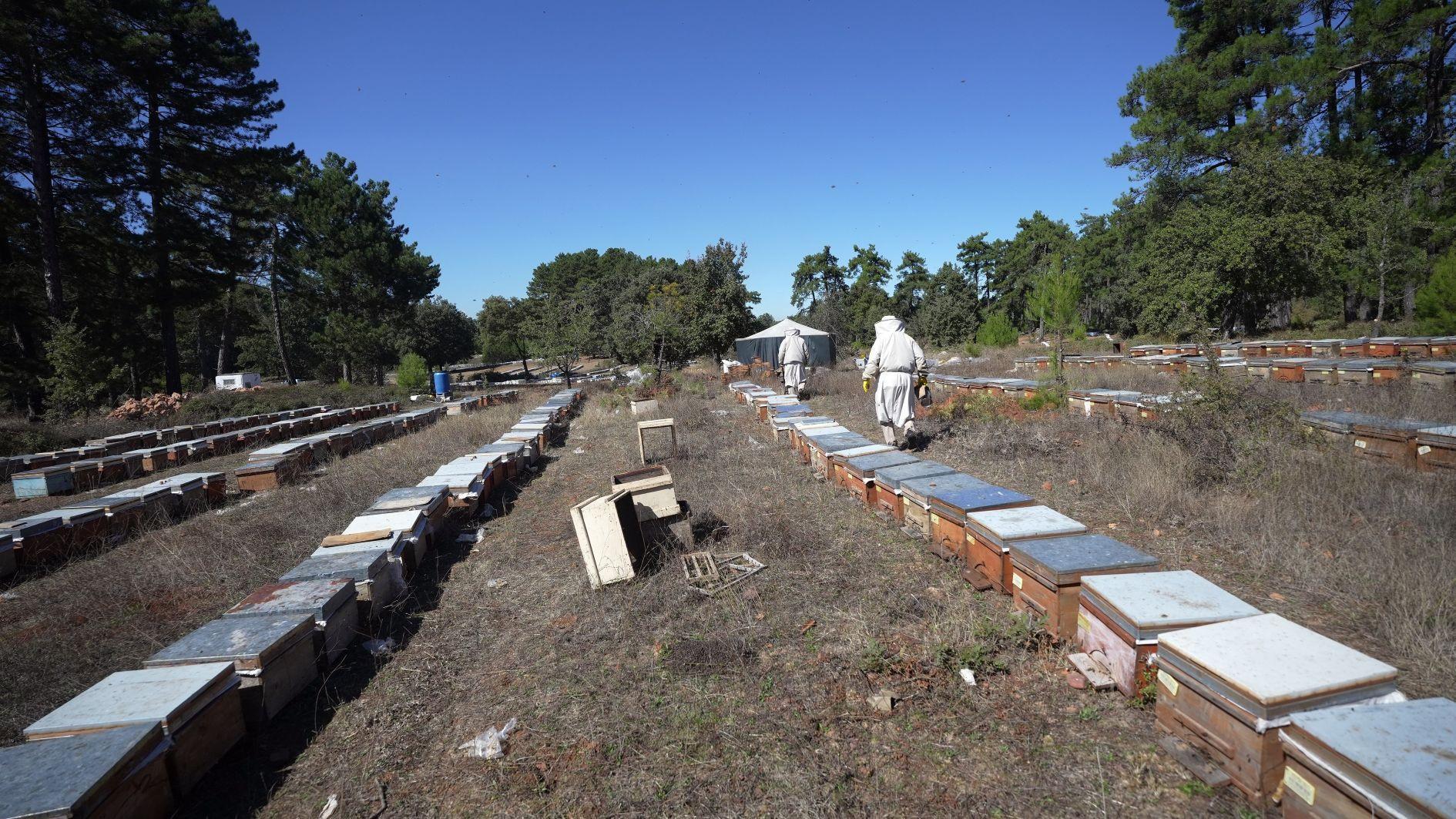Turkish producers aim for pine honey exports
ISTANBUL

Amid fierce global competition in the honey market, where flower honey dominates worldwide production, Turkish producers are carving a niche with their unique pine honey to stand out.
Turkish exporters have recently been facing the general problem of high production costs compared to rival countries, which makes it difficult for them to compete on price.
Özen Altıparmak, the chairman of leading Turkish honey producer Balparmak, noted that this problem exists in the honey sector as well.
He elaborated that the worldwide market for floral honey, sourced from diverse regions globally, is intensely competitive and that they are trying to overcome this problem with pine honey, promoting it as a premium, distinctive alternative.
Pine honey is a unique type of honey produced by bees using the sweet secretions of the "Marchalina hellenica,” commonly known as the Basra beetle, a scale insect that feeds on the sap of pine trees and is native to Türkiye.
Ninety-five percent of the world's pine honey is produced in the red pine forests along the country’s Aegean coast.
Altıparmak stated that, despite recent forest fires impacting the Basra beetle in the region, he expects a substantial rise in pine honey production this year.
“Our beekeepers have achieved their best harvest in four years,” Altıparmak said. “It looks like there will be a pine honey harvest of about 15,000 to 16,000 tons. Last year, the harvest was around 11,000 to 12,000 tons."
Altıparmak highlighted that pine honey, distinguished by its geographical indication, sustains the livelihoods of 10,000 beekeeping families in Türkiye.
He emphasized its global potential, stating, "The whole world knows New Zealand's Manuka honey. Yet pine honey has properties that are just as superior."
Altıparmak added that Turkish producers have been diligently working in recent years to showcase the exceptional qualities of pine honey.
“We have begun sharing our findings at conferences, and we will publish our scientific findings on the subject very soon,” he said. “With the support of the [U.N.’s Food and Agriculture Organization] FAO and other national and international stakeholders, we have begun working to register Turkish pine honey in Europe. Once this phase is completed, an important step will have been taken in introducing Turkish pine honey to the world.”
Altıparmak explained that, to guarantee safe delivery to consumers, pine honey is sourced directly from beekeepers and that the honey undergoes rigorous analysis against at least 100 parameters before being made available to consumers.
He also emphasized that honey counterfeiting and adulteration pose significant challenges both globally and within Türkiye.
“Incredible methods are being developed to create honey substitutes,” he said. “Honey contains natural enzymes, which are being sold on the online trading platform Alibaba. Therefore, to have a strong presence in the global market, you must have your product analyzed and prove that it is not fraudulent."















